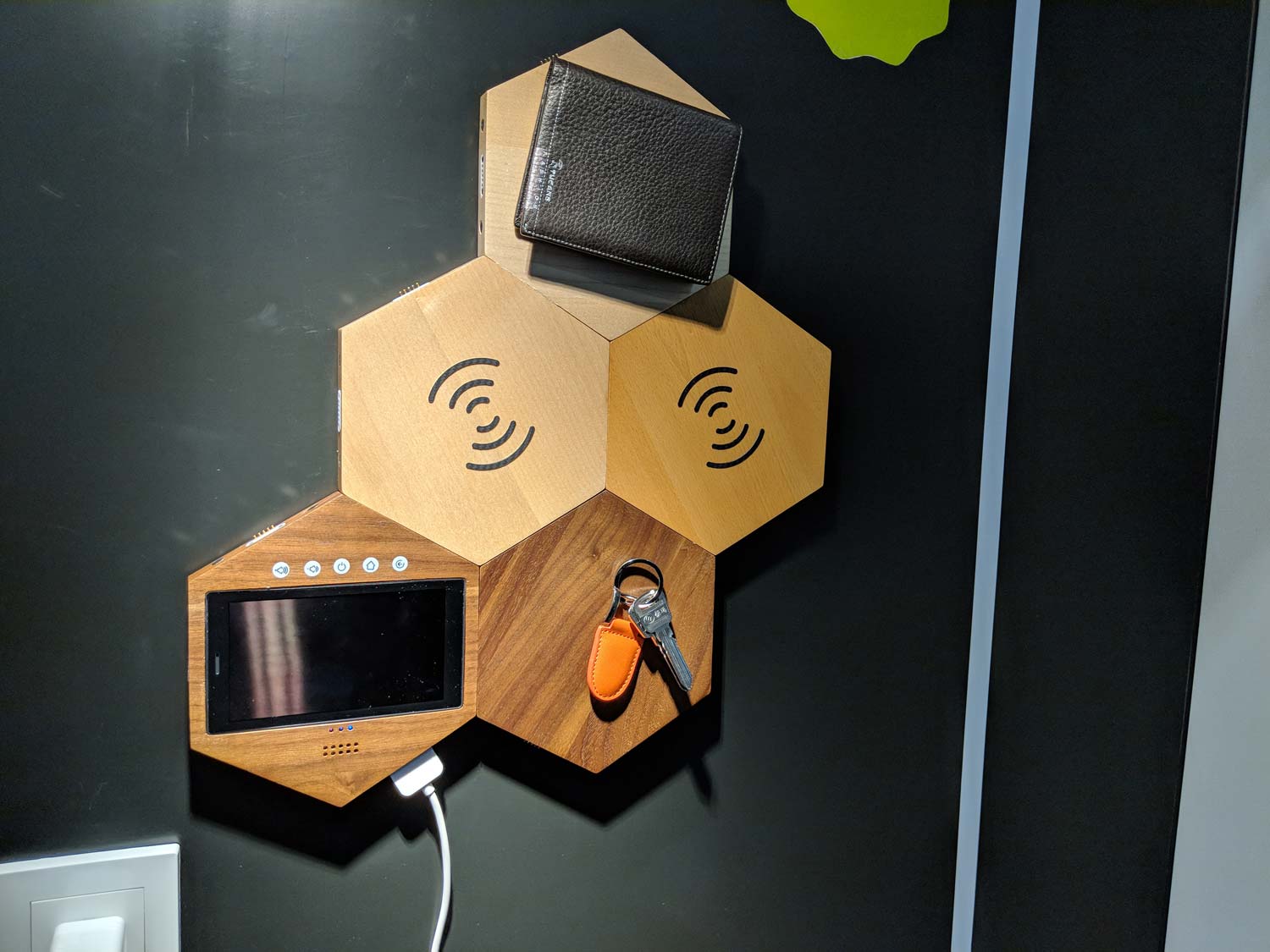MagHive Will Serve Up Reminders Any Time You Leave Your House
Pitaka is developing MagHive: a setup for storing your keys and wallet, which triggers notifications every time you leave home and return.
LAS VEGAS — MagHive, a smart hub for all of your day-to-day chores, aims to be the last thing you see before you leave home, and the first thing that greets you once you get back. And the whole system depends on your keys.

The hexagonal-shaped MagHive is a connected repository for your keys. Thanks to a key fob that doubles as an RFID sensor, MagHive detects when you've picked up your keys (or your wallet, if you place a sensor inside of that), then sends reminders to your smartphone — everything from chores you need to take care of before you leave, such as taking out the garbage, to weather reports reminding you to grab an umbrella. When you get back home and return your keys or wallet to MagHive, you're greeted by a new series of location-based reminders.
Forget about controlling your home: MagHive, which comes courtesy of magnet accessory maker Pitaka, is happy to rule over your foyer.
MORE: Best Key Finders
MagHive isn't ready to hit the market just yet — Pitaka's planning a crowd-funding campaign in a month or so first. But the basic MagHive configuration will feature three hexagonal tiles — one standard tile for holding your keys, a tile that doubles as a wireless charger using the Qi standard and a third that includes a small display. The setup is modular, and you can add more hexagonal tiles as you see fit. The standard package also includes three magnetic sensors, known as MagTags, for attaching to keys, or inserting into wallets and purses.
A neat thing about those sensors is that they're tied to a specific object. When you grab your set of keys, your reminders from MagHive may be different from those that appear when your husband grabs his wallet.
As for the reminders themselves, you'll program them in using a companion app, available for both Android and iOS devices. You program in the reminders based on whether you leave or enter the home; you can also include conditions like weather. That's a potential point of failure for MagSave: Reminders are only as effective as the person programming them in the first place. But the interface looked fairly intuitive when I saw it demoed at CES.
MagHive promises compatibility with both Amazon's Echo Dot and the Google Home, so it will be interesting to see which speaker — if either — plays nice with Pitaka's tech push.
The MagHive unit on display in Pitaka's CES booth was attached to a wall — no surprise, since Pitaka specializes in magnetized mobile accessories, such as cases that cling to vertical surfaces. But you can lay the MagHive setup on top of a table or dresser, if that's better suited to the area around your front door.
Pitaka founder James Cheng told me that the crowd-funding campaign for MagHive should begin in late February or early March, with the standard version of the smart-reminder system available for less than $200. He thinks the company will be able to turn around a salable product by April, which seems like an ambitious schedule. Still, Pitaka does indeed have some background in building mobile accessories.
- The Best Products That Work With Amazon Alexa
- How to Secure Your (Easily Hackable) Smart Home
- The Best Smart Home Devices That Work with Google Home
Get instant access to breaking news, the hottest reviews, great deals and helpful tips.
Philip Michaels is a Managing Editor at Tom's Guide. He's been covering personal technology since 1999 and was in the building when Steve Jobs showed off the iPhone for the first time. He's been evaluating smartphones since that first iPhone debuted in 2007, and he's been following phone carriers and smartphone plans since 2015. He has strong opinions about Apple, the Oakland Athletics, old movies and proper butchery techniques. Follow him at @PhilipMichaels.
 Club Benefits
Club Benefits






